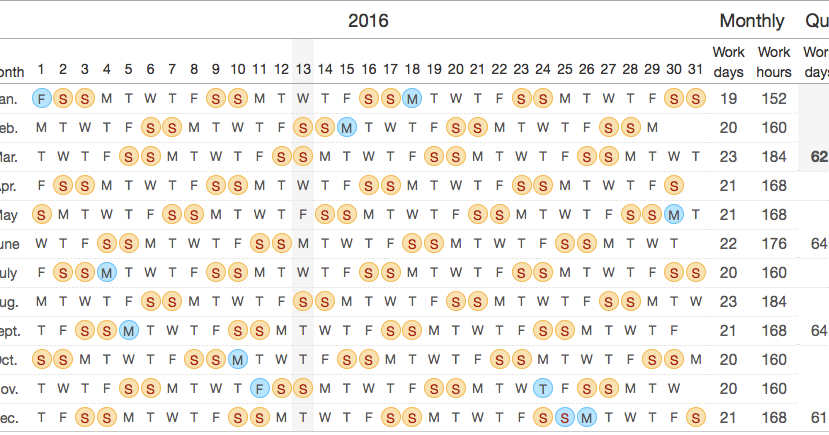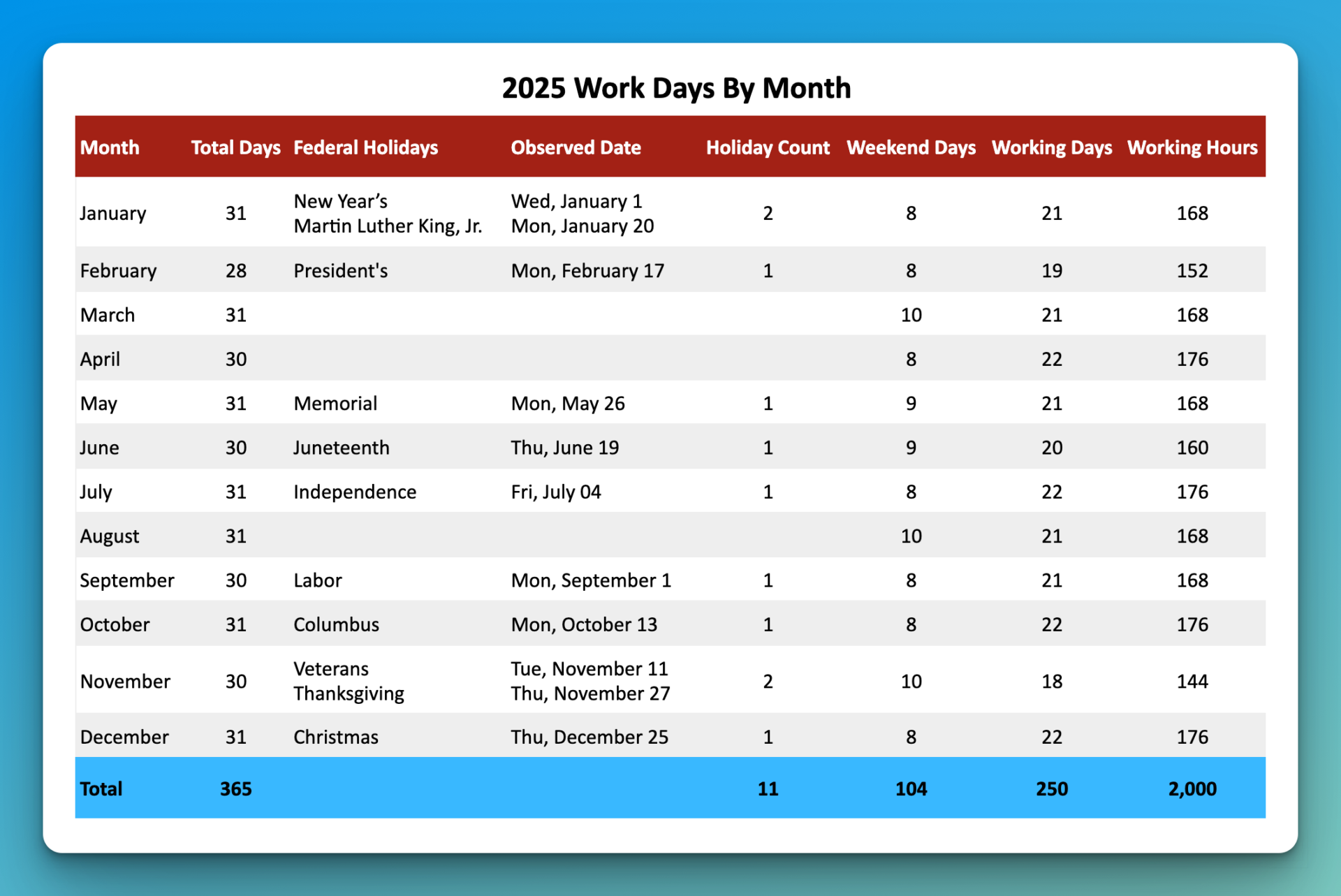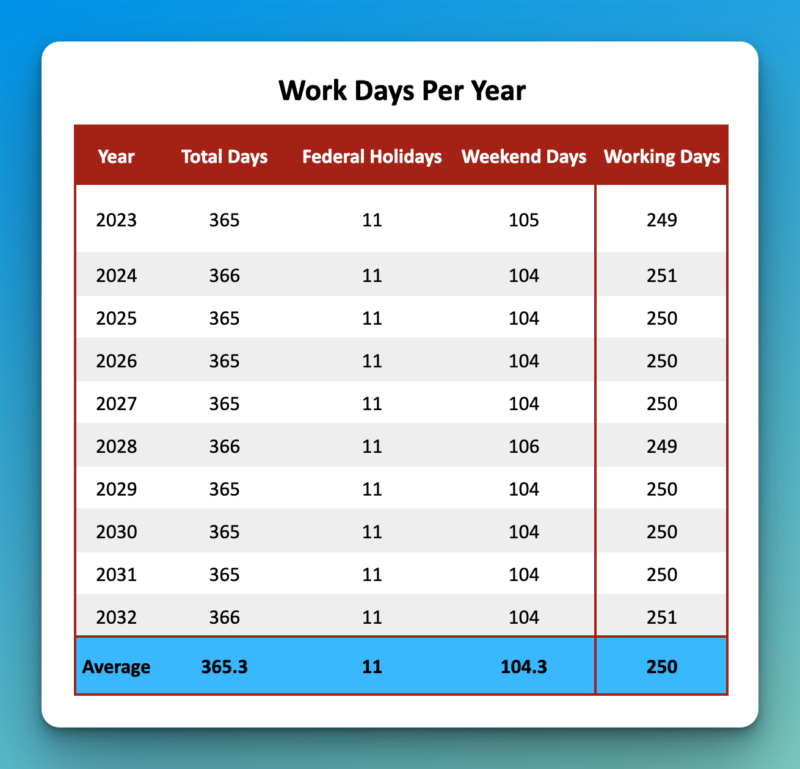calendar days vs working days
Associated Articles: calendar days vs working days
Introduction
With nice pleasure, we are going to discover the intriguing matter associated to calendar days vs working days. Let’s weave fascinating data and provide recent views to the readers.
Desk of Content material
The Nice Divide: Calendar Days vs. Working Days – A Deep Dive into Time Administration and Productiveness

The seemingly easy distinction between calendar days and dealing days masks a posh actuality impacting productiveness, undertaking administration, scheduling, and even our total notion of time. Whereas each signify items of time, their sensible implications differ considerably, influencing how we plan, execute, and consider our work and lives. This text delves into the nuances of this distinction, exploring its affect throughout varied sectors and providing insights into efficient time administration methods that bridge the hole between these two temporal frameworks.
Defining the Phrases:
A calendar day is a 24-hour interval, starting at midnight and ending on the following midnight. It’s a constant, universally understood unit of time, forming the spine of our scheduling programs. Calendar days embody all hours, no matter exercise or productiveness. Weekends, holidays, and even intervals of sickness or downtime are all included inside the framework of a calendar day.
A working day, then again, is way extra context-dependent. It sometimes refers back to the interval throughout which a person or group is actively engaged in work-related actions. This usually interprets to a typical 8-hour workday, however its exact period can range considerably primarily based on elements akin to trade, occupation, firm coverage, and even particular person work habits. Working days inherently exclude non-working hours, akin to weekends, public holidays, and private go away.
The Implications of the Distinction:
The distinction between these two ideas has profound implications throughout quite a few points of life and work:
-
Venture Administration: Venture timelines usually depend on calendar days, offering a seemingly goal measure of progress. Nevertheless, this strategy could be deceptive. A undertaking scheduled for completion inside 30 calendar days would possibly seem like lagging if solely 15 working days have handed. Efficient undertaking administration necessitates a transparent understanding of each calendar and dealing days, permitting for correct estimations and contingency planning. Utilizing solely calendar days can result in unrealistic deadlines and elevated stress.
-
Useful resource Allocation: Companies have to allocate sources – human capital, tools, supplies – successfully. Ignoring the excellence between calendar and dealing days can result in misallocation. Scheduling conferences, assigning duties, and allocating budgets require a sensible evaluation of accessible working hours, not simply whole calendar days. Overlooking this can lead to bottlenecks, delays, and finally, undertaking failure.
-
Productiveness Measurement: Assessing particular person or workforce productiveness utilizing solely calendar days could be unfair and inaccurate. A person who works persistently all through their working days will inevitably be extra productive than somebody who sporadically works throughout a bigger variety of calendar days. Efficient productiveness measurement requires contemplating the precise time spent working, not simply the whole variety of days concerned.
-
Compensation and Payroll: Compensation is sort of universally calculated primarily based on working days or hours, not calendar days. Salaries, wages, and time beyond regulation funds are all decided by the precise time spent working, reflecting the worth of the worker’s contribution.
-
Authorized and Regulatory Compliance: Many authorized and regulatory frameworks make the most of working days as the premise for deadlines and compliance necessities. Understanding the particular definition of a "working day" inside a specific jurisdiction is essential for adhering to authorized obligations.
Bridging the Hole: Efficient Time Administration Methods:
The important thing to successfully navigating the variations between calendar and dealing days lies in sturdy time administration methods:
-
Correct Job Estimation: Precisely estimating the time required to finish duties is paramount. This requires breaking down giant duties into smaller, manageable items, estimating the working hours wanted for every, and factoring in potential delays or unexpected circumstances.
-
Prioritization and Scheduling: Prioritizing duties primarily based on urgency and significance is essential. Using scheduling instruments that distinguish between calendar and dealing days permits for a extra sensible and efficient plan. This might contain utilizing a Gantt chart that explicitly accounts for working days or a undertaking administration software program that permits for customisable working hours.
-
Buffer Time: Constructing buffer time into schedules is crucial to account for sudden delays or interruptions. This prevents minor setbacks from cascading into main delays and ensures tasks stay on monitor.
-
Common Evaluation and Adjustment: Frequently reviewing progress in opposition to the schedule is essential. This enables for early identification of potential issues and permits for well timed changes to the plan. This would possibly contain adjusting deadlines, reallocating sources, or revisiting job estimations.
-
Efficient Communication: Clear communication is crucial, significantly when working in groups. Guaranteeing everybody understands the excellence between calendar and dealing days and the way it impacts undertaking timelines and deadlines is important for collaboration and profitable undertaking completion.
Trade-Particular Concerns:
The excellence between calendar and dealing days takes on distinctive significance throughout completely different industries:
-
Building: Climate situations, materials delays, and unexpected website points can considerably affect working days, making correct undertaking scheduling essential.
-
Healthcare: Emergency conditions and unpredictable affected person wants can disrupt normal working day schedules, requiring flexibility and adaptableness.
-
Manufacturing: Manufacturing schedules usually depend on exact calculations of working hours and machine uptime, requiring cautious consideration of upkeep and downtime.
-
Software program Improvement: Agile methodologies emphasize iterative improvement and frequent releases, requiring cautious monitoring of working days to make sure well timed supply of options.
Conclusion:
The excellence between calendar days and dealing days just isn’t merely a semantic distinction; it is a basic facet of efficient time administration and productiveness. Ignoring this distinction can result in unrealistic expectations, missed deadlines, and inefficient useful resource allocation. By adopting efficient time administration methods that explicitly account for the nuances of working days, people and organizations can improve their productiveness, enhance undertaking outcomes, and foster a extra sensible and sustainable strategy to work and life. Understanding and making use of this distinction is essential to navigating the complexities of time administration in right this moment’s fast-paced world. The acutely aware effort to distinguish between these two temporal frameworks will undoubtedly result in improved effectivity and a extra correct notion of time’s worth.








Closure
Thus, we hope this text has offered invaluable insights into calendar days vs working days. We hope you discover this text informative and useful. See you in our subsequent article!